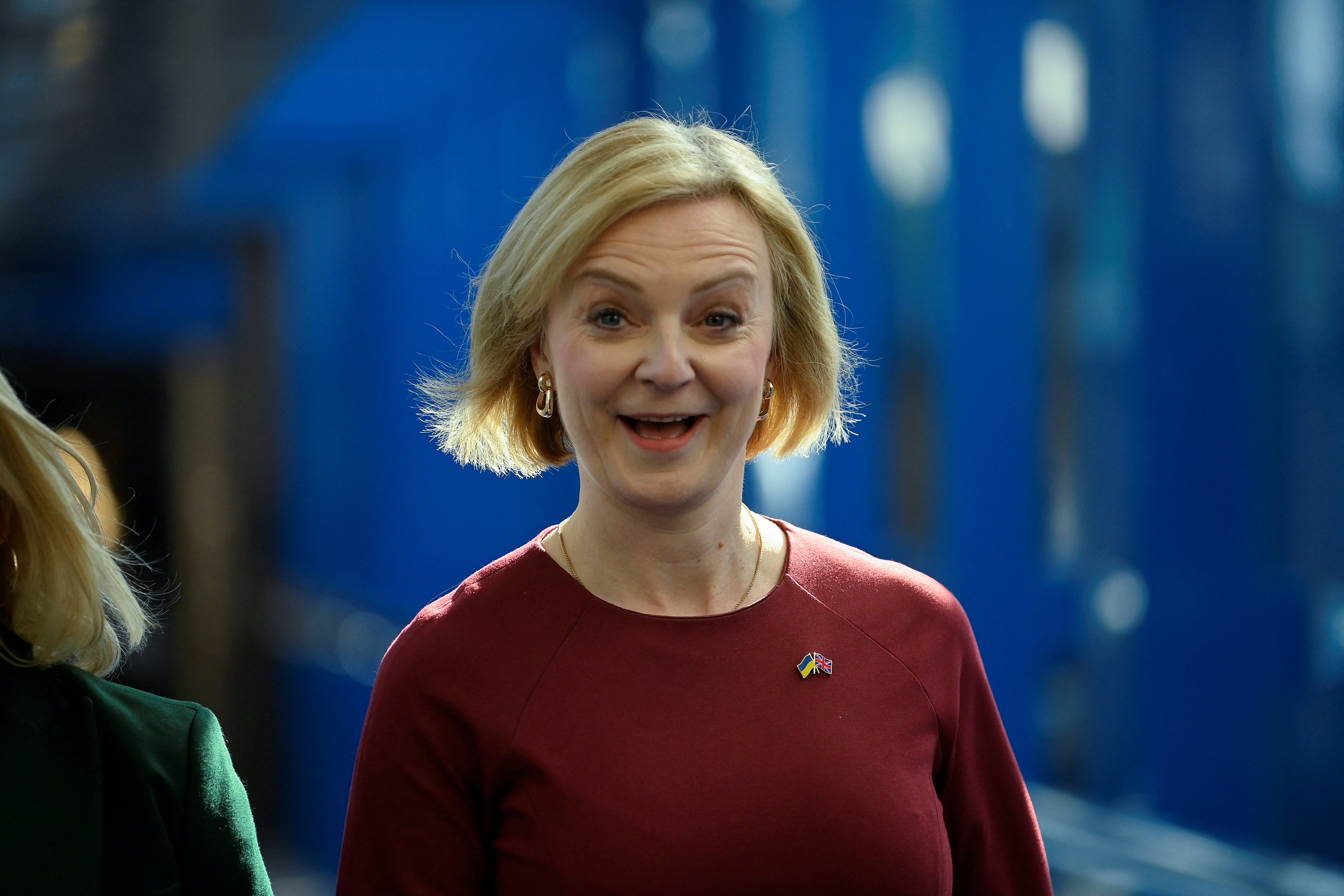Trussonomics cannot work now – so what happens next?
What our prime minister and chancellor have managed to do is to make the UK a much riskier prospect than it was before, writes Hamish McRae


This isn’t going to work. The small window that the government might have had to put together a credible economic policy, which was open a week ago, has slammed shut. The financial markets have seen to that. Trussonomics is dead, even if its creators, Liz Truss and Kwasi Kwarteng, don’t yet realise this. So what happens next?
Step back to last August, when the people around Liz Truss were putting together her ideas. Stripped down, the plan was to cut taxes and borrow more, and that combination would generate faster growth that would eventually increase tax revenues. But at the beginning of August the interest rate on 10-year government stock was 1.81 per cent.
When she took office on 6 September, it was 3.09 per cent and, last Friday, even after the Bank of England intervention to hold rates down, it was 4.08 per cent.
Think of it this way. You are buying a house you can barely afford, but might just about risk it if the mortgage cost is below 2 per cent. You absolutely cannot go ahead if two months later the rate has more than doubled to more than 4 per cent. To think you still can is seriously stupid.
This isn’t just about the UK. The confidence of the global financial markets has collapsed in those two months, and those fears shot up last week. It is, as Bloomberg comments, a “raging market sell-off”, with prices of just about every asset plunging. The riskier the asset, the greater the fall. Indeed, there is a real fear of some sort of collapse akin to that which happened in the run-up to the banking crash of 2008.
What our prime minister and chancellor have managed to do is to make the UK a much riskier prospect than it was before. The price for that is even higher interest rates than would otherwise have been the case. Whereas two months ago the UK government could borrow more cheaply than the US, now it has to pay more. And that means we’ll have to pay more. Oh dear.
Liz Truss blames the mess on a communication problem with the markets. She still doesn’t understand. The problem is the other way round. It is not the government failing to get its message to the markets. It is her failing to listen to what the markets think about her plans – and changing them.
As far as the UK is concerned, the idea of waiting until the budget on 23 November, getting the Office of Budget Responsibility to endorse the policies and then pressing ahead seems to me to be unlikely to fly. It is for the political experts to say whether Tory MPs will push out Truss and Kwarteng and install Rishi Sunak as PM before then. They wanted him in the first place and in the TV leadership debate he warned about the dangers of a collapse in confidence if Liz Truss pressed ahead.
If they do, confidence in UK financial management would swing back and we would have a decent chance of scrambling through the next two years in an OK shape. The risk premium on UK assets would come down, sterling would recover a bit and our interest rates would probably be up to one percentage point lower than they otherwise would. Not great, but not dreadful.
To keep up to speed with all the latest opinions and comment, sign up to our free weekly Voices Dispatches newsletter by clicking here
If the present team does manage to struggle on for a bit, then the PM and chancellor will come to realise they are not really making the decisions. The markets are running the show, not them. So it will be an even weaker pound, higher interest rates, higher inflation and even more misery for all. Eventually, policies will shift, but how and when no one can predict.
In a funny way, I am actually more worried about the world economy than the UK one. We are pretty resilient. To be sure, we have had a self-inflicted blow and that has added to the jitters. But it was marginal in global terms. These financial stresses will continue through the winter and it is hard to predict quite where the fallout will land. Inflation in the eurozone reached 10 per cent, and in Germany it was 10.9 per cent on the EU harmonised measure, higher than the UK. In the Netherlands it is 17 per cent. And let’s not think about energy costs.
In the US, the stress is showing in share prices, with the S&P 500 index down 25 per cent this year and the lowest since 2020, and in mortgage rates. Bank of America is quoting 6.85 per cent APR for a 30-year fix and more than 6 per cent for a 10-year variable. Worry about the UK housing market? Theirs is vastly more important for the world.
So it will be a tough and unpredictable autumn and winter ahead for everyone. The upsetting thing is that this UK government has managed to make it tougher and less predictable for us than it needs to be.
Join our commenting forum
Join thought-provoking conversations, follow other Independent readers and see their replies
Comments
Bookmark popover
Removed from bookmarks